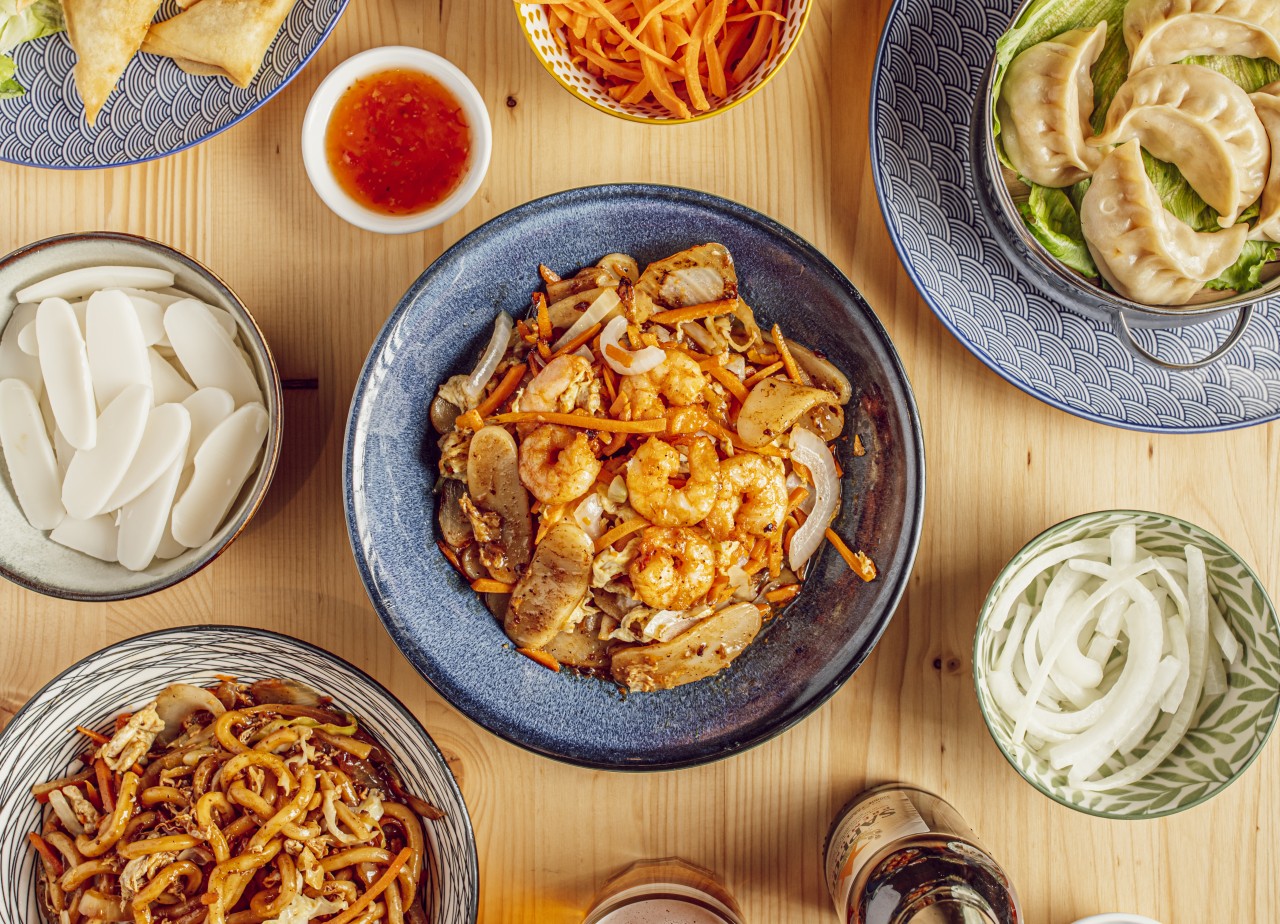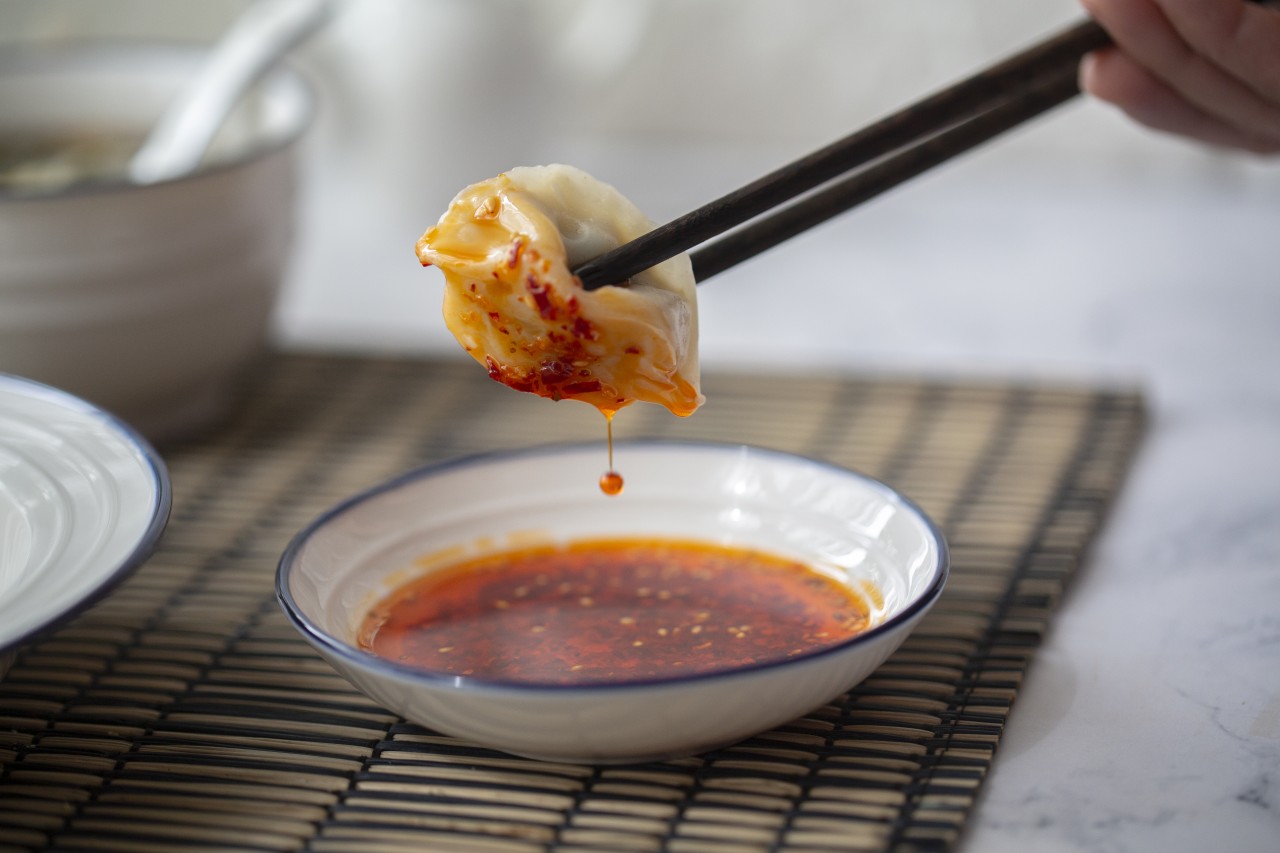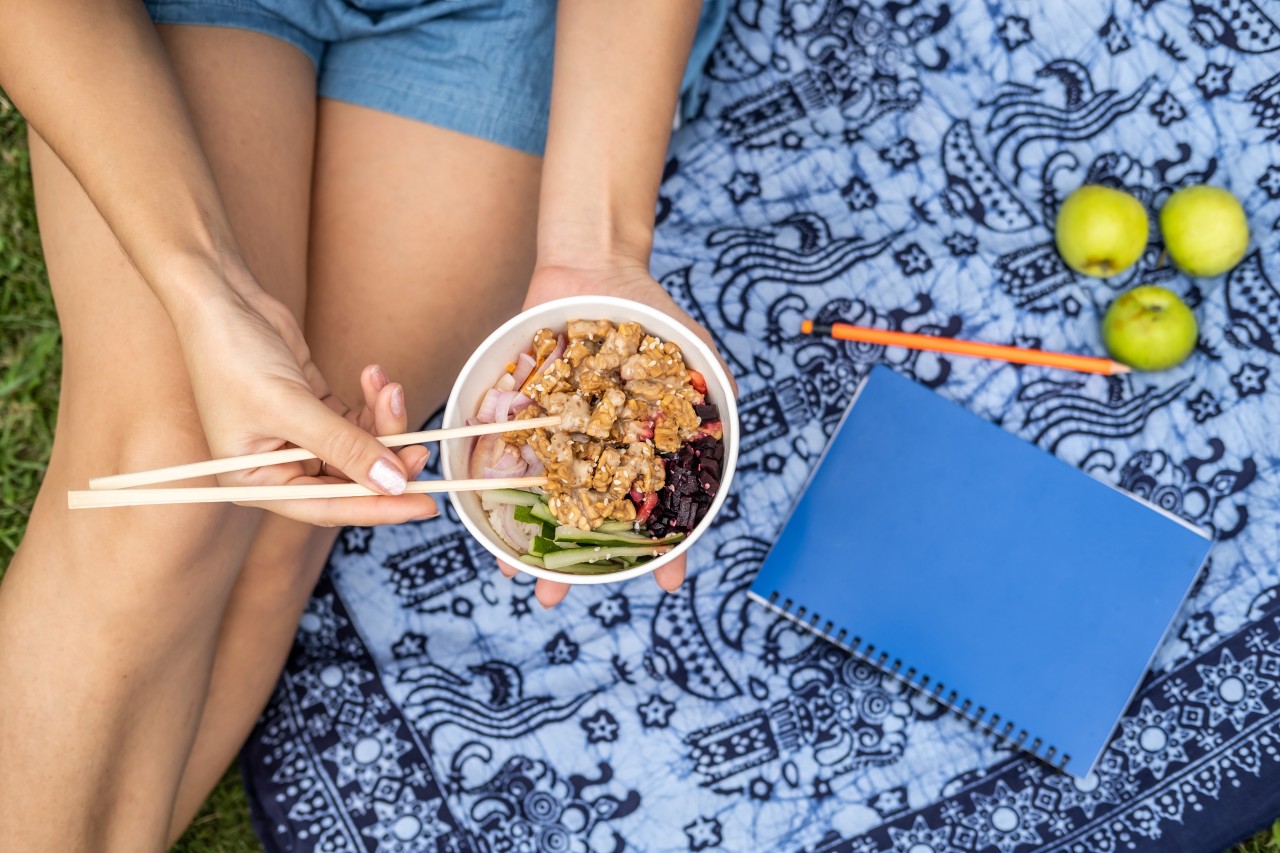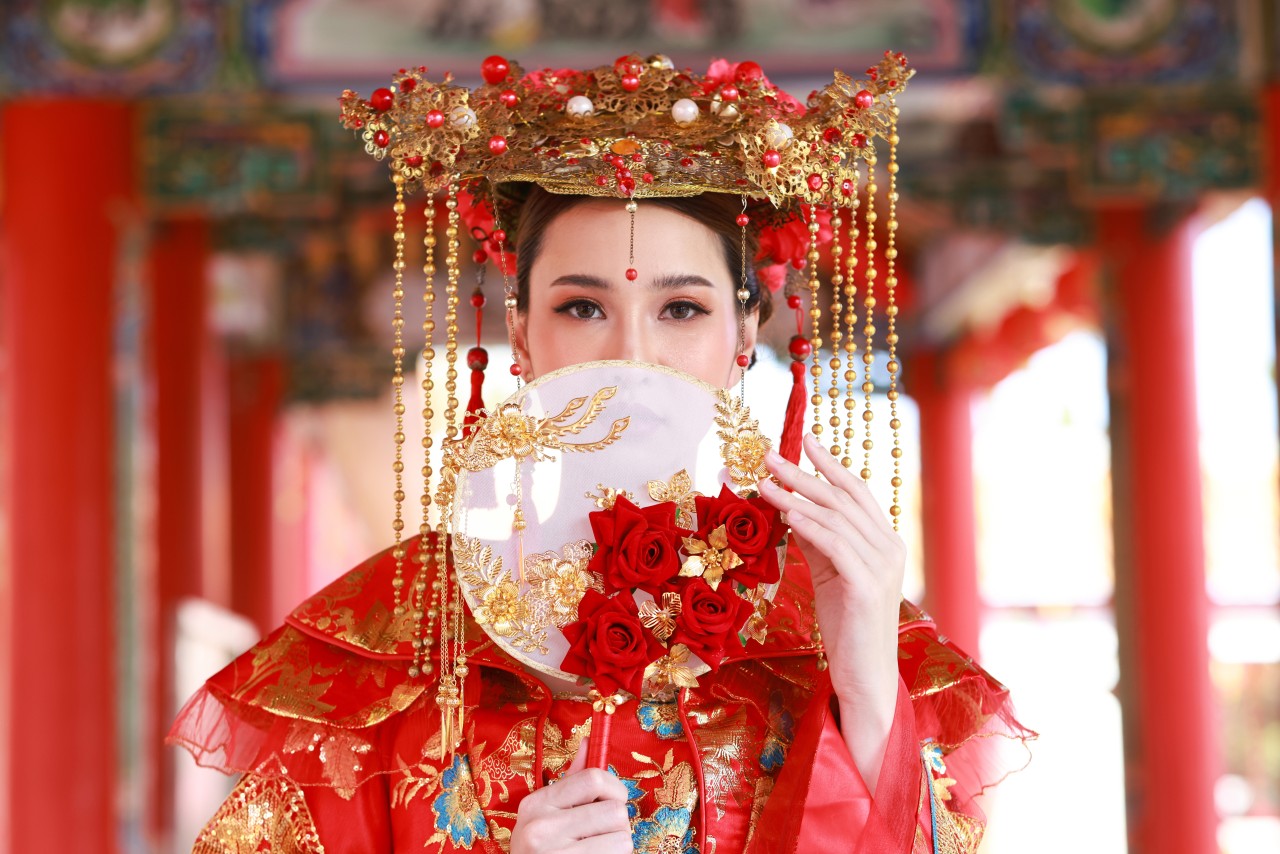Do you know nian gao?
Chinese food has a lot of curious ingredients, such as nian gao. In this article you will discover all its secrets.
Chinese food is rich and diverse, due to its vast territory, and the recipes change from one region to another. This happens with nian gao, an ingredient that can be served sweet or salty.
The rice cake or nian gao is a very complete ingredient, it becomes a perfect recipe any day of the week; however, it owes its fame to being a typical Chinese New Year dish.
Have you ever tried it? Fancy learning more about Pure Cuisine's favorite Asian food ingredients?
Read on and learn about the history and different varieties of nian gao around the world.
What does "nian gao" mean?
It has two interpretations, Nian "Year" & Gao "High" or Nian "Taffy" & Gao "Tart". Find out more below.
In Chinese gastronomy it is very interesting to learn the meaning behind the name of each of its dishes, follow the link to learn more.
In the case of the nian gao, there are different interpretations. For one thing, the Chinese character that reads as “nian” means “year” and the one that reads as “gao” sounds like the one that means “high”.
This is where the tradition of eating it during the New Year holidays comes from, since they consider that it gives good luck to have a great year.
On the other hand, the character "gao" can be translated as "cake" and the word "nian" can also be used to name something chewy, as the main ingredient of this dish.
This is why the nian gao can take on different shapes and colors, like carp or armadillo, and thus ask the coming year for new wishes for prosperity.
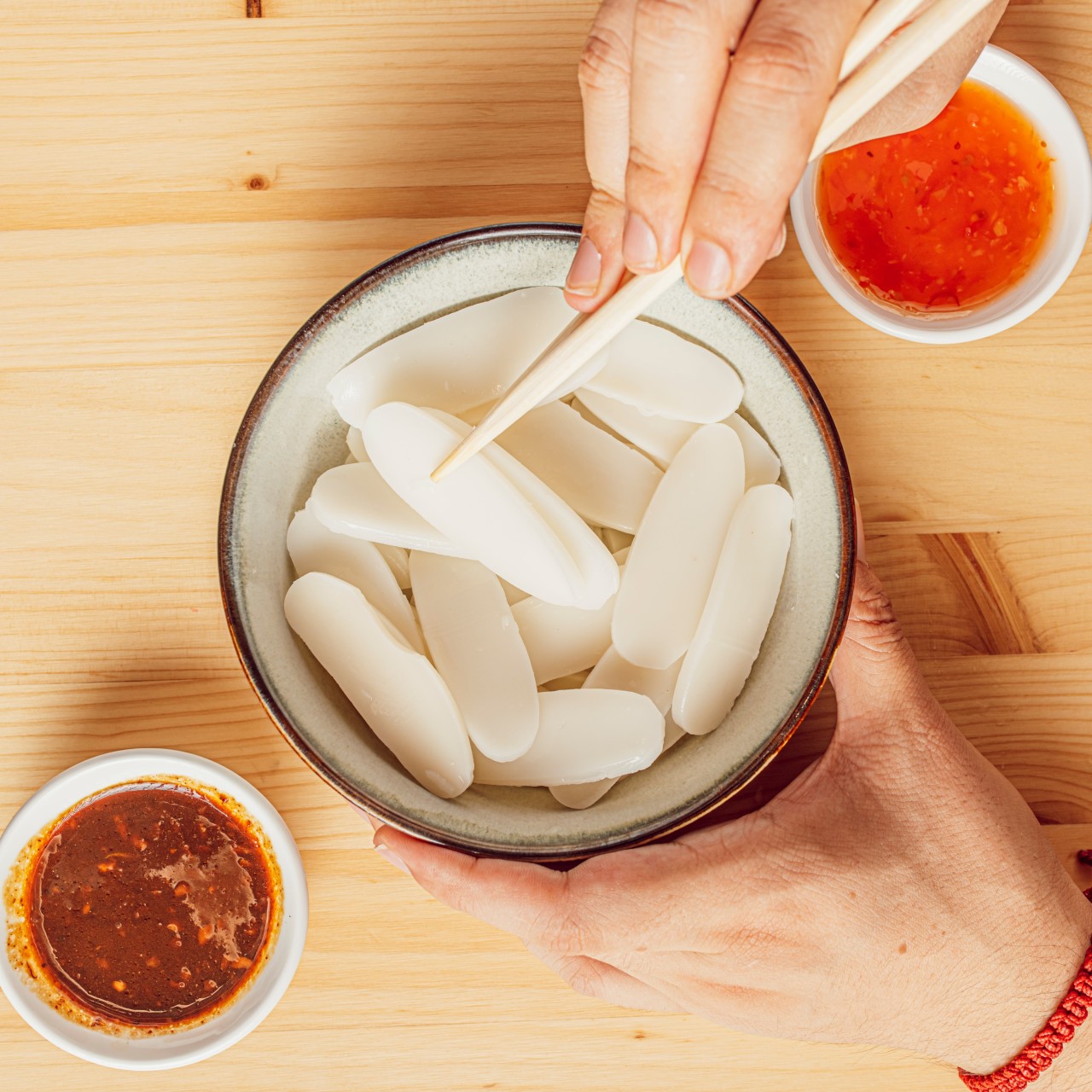
What is nian gao?
The nian gao is a rice dough that is used in different recipes, it is white and becomes chewy and soft when it is soaked in water.
If you look at the menus of different Chinese food restaurants, you will realize that nian gao is used in both main dishes and desserts.
At Pure Cuisine we do it in the style of the Jiangnan - Shanghai region, where nian gao is a savory food, but in other regions, such as Cantonese, you find it in a sweet format.
What the savory and sweet preparation have in common is their most important ingredient, the chewy, oval-shaped rice paste known as niangao.
From this base, the Chinese cook nian gao in different ways, mixing it with all kinds of products and giving each dish a different touch.
Origin of nian gao
The history of Asian gastronomy, and especially Chinese, goes back many centuries. To know the origin of certain dishes, historians rely on the appearance of said foods in the writings of each country.
In the case of nian gao, some sources claim that its history goes back to an agricultural book written between the 4th and 6th centuries and in which a recipe with this type of glutinous rice is mentioned.
The nian gao is one of those dishes of Chinese cuisine that appears in practically all Asian food restaurants and that always conquers palates.
If you want to start with the salty version, come visit us or order through our website and we'll take it to your home. Take advantage!
Varieties of nian gao
Nian gao comes in different forms depending on which region of the country you're visiting (or which restaurant you're eating it at).
Below you will discover different interpretations of the same ingredient in different places in China and Asia:
Shanghai
This plate is white in all its versions. One of its most delicious forms is the salty nian gao, made from a mixture of normal rice and sticky rice and eaten fried, boiled or in soup.
At Pure Cuisine you will find this type of dish in its sautéed version, with egg, cabbage, carrot, onion and the complement you choose, between meat, vegetables or prawns.
Also, in Shanghai, white sugar is used to turn this food into a dessert and maintain its white color. You will find it in very funny shapes, as it happens with other Chinese and Asian dishes, and with a soft texture, very pleasant to the palate.
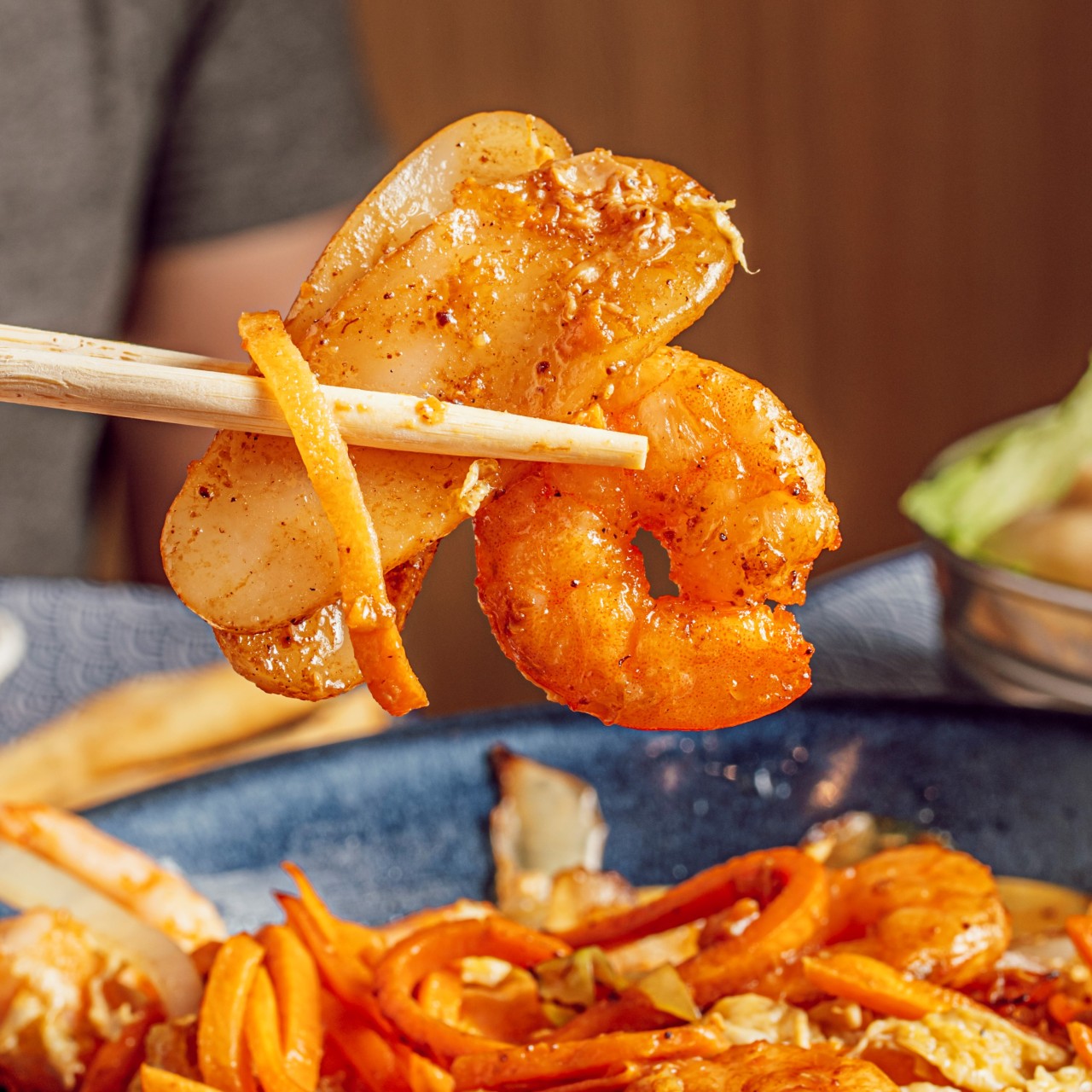
Canton
Another of the best-known versions of nian gao is the one made in the province of Canton, where it is cooked with brown sugar, which gives this dessert a dark color.
Nian gao from the Cantonese area is boiled and served in thick squares, but sometimes it is also deep-fried, giving it a crispy outside and soft inside.
At New Year's parties, this sweet is served along with other typical foods, but it is also used as a gift for family and friends, wishing everyone a prosperous year.
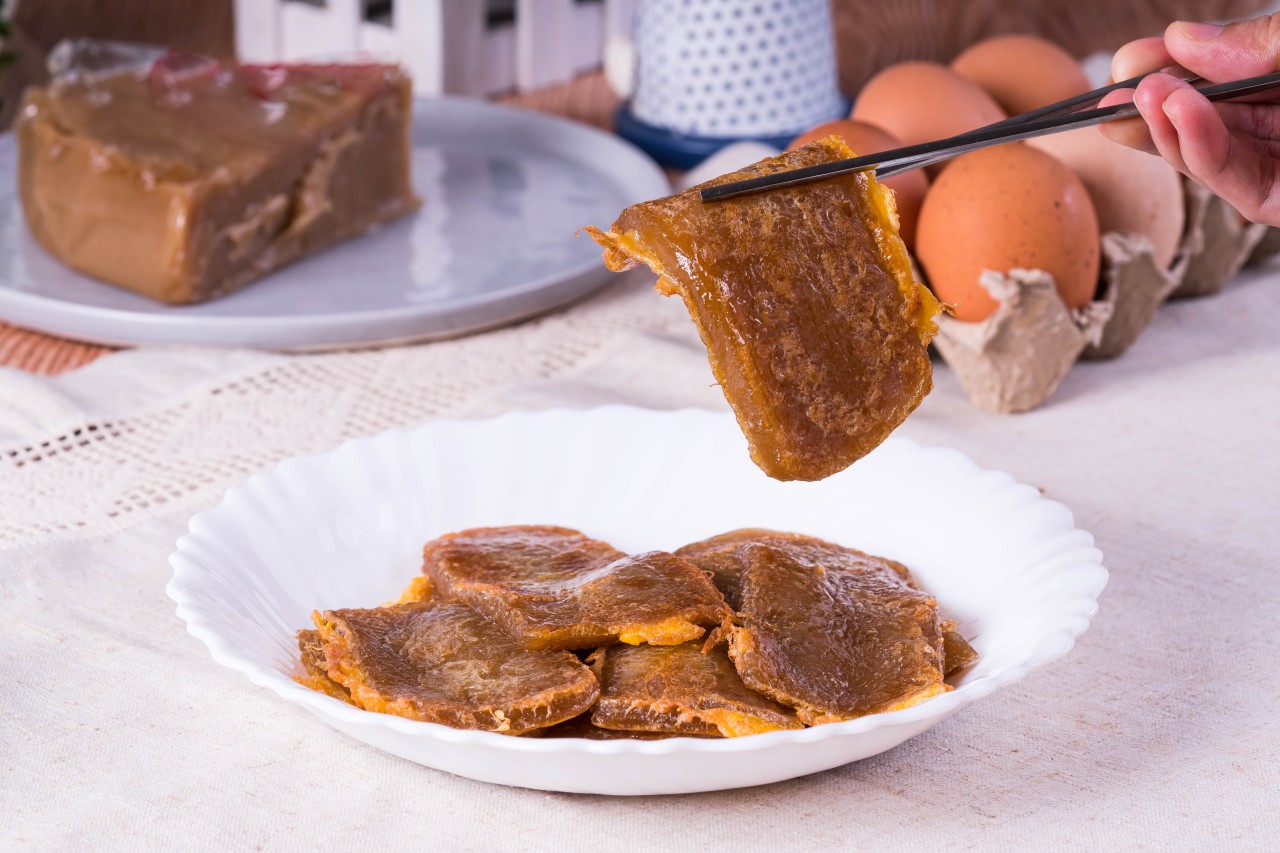
Harbin
In the northern part of the country, nian gao is also served as a dessert, but in this region it is mixed with different products such as Chinese dates, red beans and even green beans.
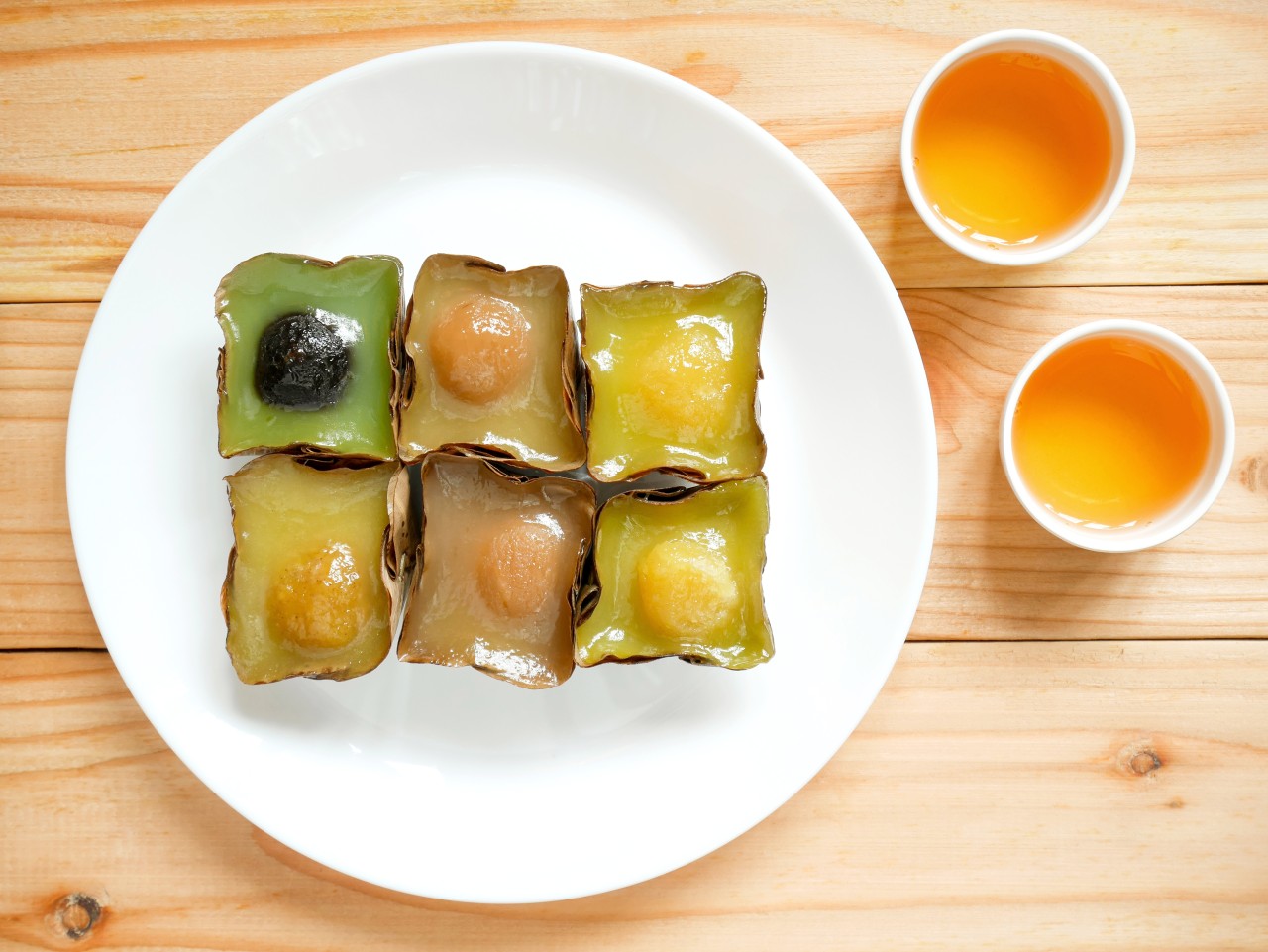
Japan, Burma and Korea
In addition, as with many other dishes in Chinese cuisine, throughout history the nian gao has spread to different Asian countries, changing its name and changing to the tastes of each country.
Thus, among the derivatives of nian gao in Asia, you can try mochi, a typical Japanese cake, tikay, a Burmese sweet, or tteokguk, a traditional Korean soup that is also usually eaten during the New Year celebration.
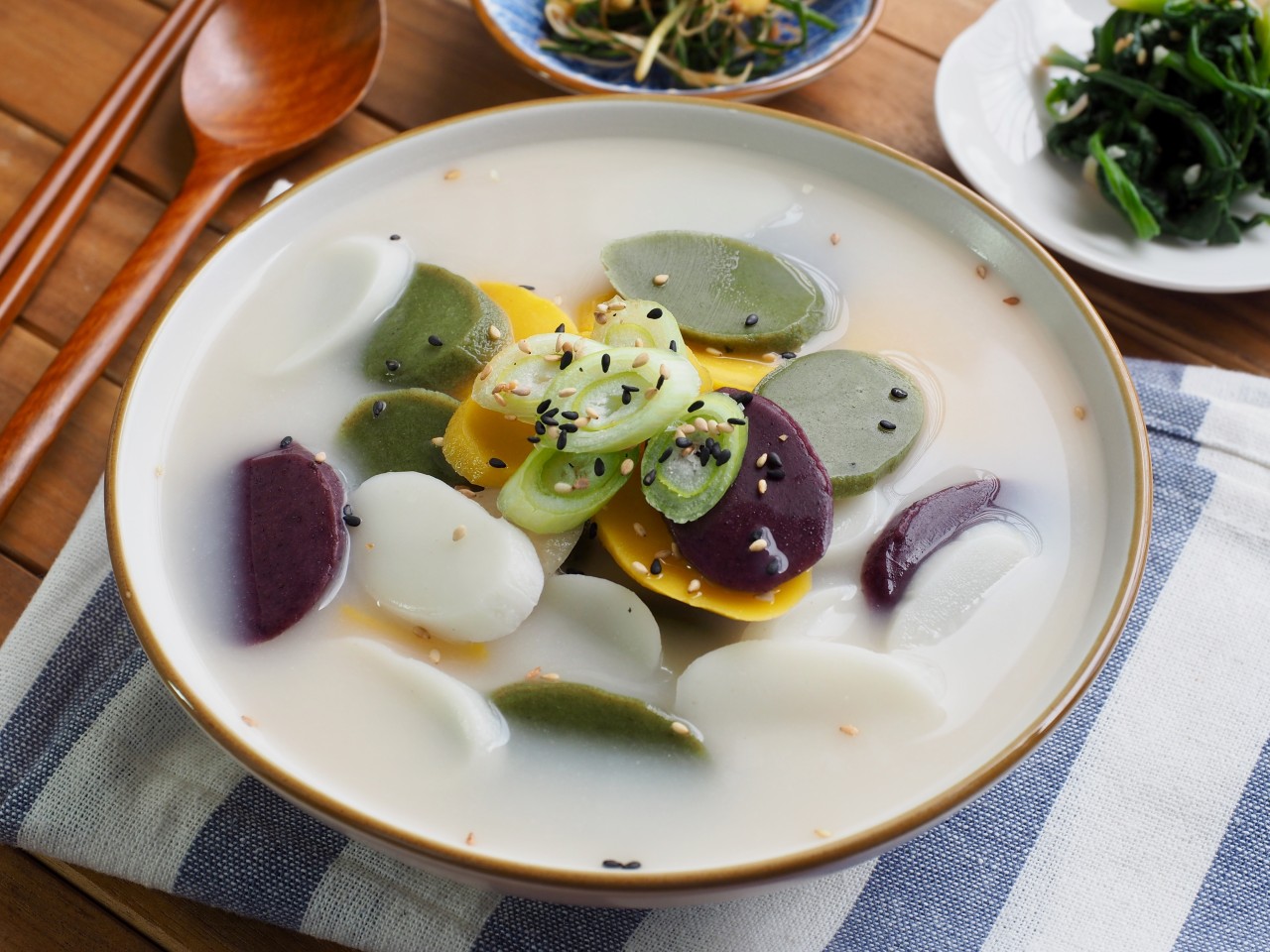
Descubre más sobre la comida asiática:
If the article you just read didn't quite fill your appetite for knowledge, we have many more articles. Come visit them all by clicking here.
We are sure that talking about nian gao so much could make you hungry, so don't waste a second, with a single click, you can place your order on Uber Eats.
